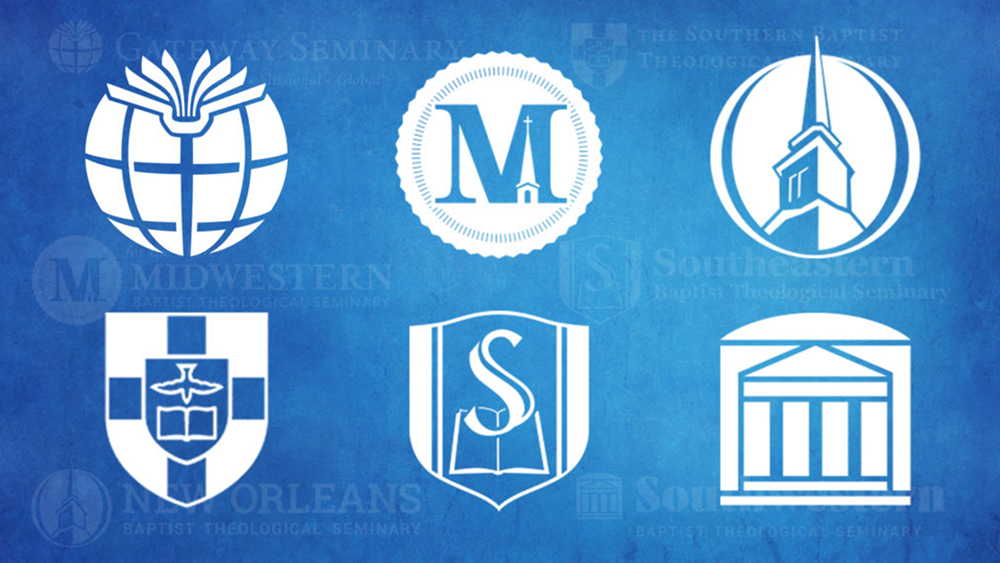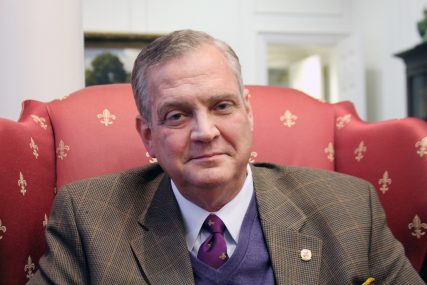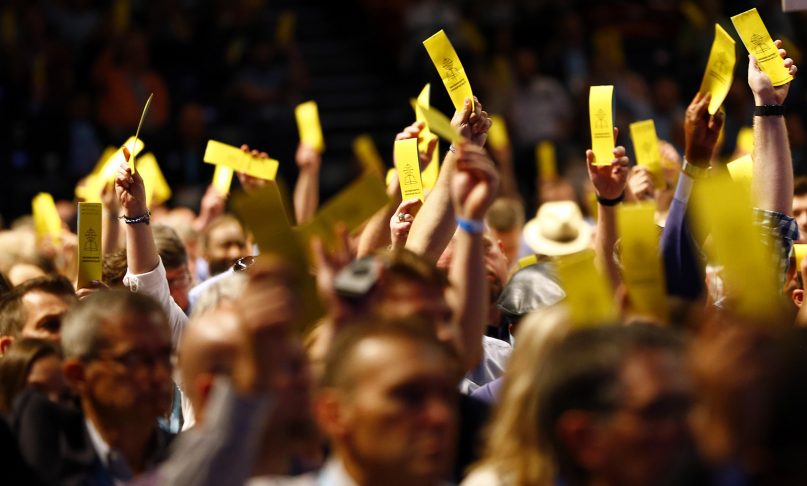(RNS) — The last we knew, the Southern Baptist Convention was trying to lay the ghost of its pro-slavery beginnings. It had repented of that original sin, included a condemnation of racism in the 2000 revision of its “Faith and Message,” sought to bump up Black membership and, in 2012, even chose the Rev. Fred Luter, a New Orleans pastor, to be its first Black president.
So we were somewhat surprised when, a few days after Thanksgiving, the presidents of its six seminaries celebrated the 20th anniversary of the revision by declaring that “affirmation of Critical Race Theory, Intersectionality, and any version of Critical Theory is incompatible with the Baptist Faith & Message.” When a number of prominent Black SBC pastors — four and counting — thereupon announced their departure from the denomination, we were not at all surprised.
Talk about stepping on your own, ah, message. What’s going on?
For those of us who haven’t been paying attention, critical race theory, often referred to as CRT, holds that (quoting the Britannica here) “racial inequality emerges from the social, economic, and legal differences that white people create between ‘races’ to maintain elite white interests in labour markets and politics, giving rise to poverty and criminality in many minority communities.” It’s been kicking around the academy since 1989.
Fast forward to June 2019. At its annual convention in Birmingham, Alabama, the SBC passes a resolution that slightly affirms CRT and intersectionality, the (quoting the Oxford English dictionary here) “interconnected nature of social categorizations such as race, class, and gender, regarded as creating overlapping and interdependent systems of discrimination or disadvantage.”
While recognizing Scripture “as the first, last, and sufficient authority with regard to how the Church seeks to redress social ills,” the resolution allows as how critical race theory and intersectionality (CRT&I) are “analytical tools (that) can aid in evaluating a variety of human experiences” — albeit only to be employed “subordinate to Scripture—not as transcendent ideological frameworks.”
Talk about inflammatory!

Logos of the six Southern Baptist Convention seminaries. Image courtesy of Baptist Press
Quicker than you can say “biblical inerrancy,” the conservative opposition leapt to the attack. “Wait a minute!” we find ourselves interjecting. “The SBC has a conservative opposition?”
Yes, Virginia, it does. There’s a Conservative Baptist Network, connected to guys who took over the SBC 40 years ago in what’s remembered as the Conservative Resurgence. There’s also a Calvinist outfit (including some of that old guard) that goes by the name of Founders Ministries.
The latter put out a documentary that will tell you all you need to know (and more) about how CRT&I has impregnated the SBC. Long story short, employing a bit of CRT&I for analytic purposes is like claiming you’re a little bit pregnant.
In other words, you’re all in from the moment of conception, so far as the conservative opposition is concerned. Once you start seeing racism in the structure of worldly power relations, you’ve slid down the slippery slope into feminism (women pastors), LGBTQ++ rights (same-sex marriage), socialism (voting Democrat), climate change (Gaia worship) — in other words, into full-blown wokeness (Marxist materialism).
Never mind that America’s seminal theologian Jonathan Edwards drew heavily on the philosophy of John Locke or that 19th-century evangelicalism was deeply wedded to the scientific theories of Francis Bacon. When it comes to questions of justice and inequity, declares Founders Ministry Executive Director Tom Ascol, just “take God at His word and believe that what we have in the Scripture is enough.”
Truth to tell, the conservative opposition has more bees in its bonnet than CRT&I. Anti-Trumpers and even those slow to jump aboard the Trump train are personae non gratae. Russell Moore, the head of the SBC’s Washington lobby, is an object of deep suspicion. Time to saddle up for a Re-Resurgence.
Back in 2019, most SBC pastors, to say nothing of the vast (if these days shrinking) body of SBC faithful, were living in blissful ignorance of CRT&I. No more. The alarm has been sounded and the denominational powers-that-be are running scared.
Albeit, according to Scripture, one cannot serve God and mammon, money talks in the SBC — and no money talks louder than the money that might be withheld from the Cooperative Giving program under which member congregations provide for the denomination’s collective enterprises.
Why else would the seminary presidents have gone out of their way to distance themselves from the 2019 resolution, or would SBC President J.D. Greear, who shepherded it to passage, have pronounced himself in full agreement with the statement when it first came out?
Now, the public disaffection of Black church leaders in the SBC has shoved in the opposite direction. Last week, Greear made it his business to support the Black pastors’ criticism even as the seminary presidents put together another joint statement that began, “We regret that our statement inadvertently caused significant hurt among some black brothers and sisters.”

R. Albert Mohler Jr., president of Southern Baptist Theological Seminary in Louisville, Kentucky. RNS photo by Adelle M. Banks
Among the presidents, the big dog is R. Albert Mohler Jr., president of the Southern Baptist Theological Seminary in Louisville. He was among the Young Turks who took no prisoners during the Resurgence, ridding SBTS of anyone and anything that smacked of liberalism.
But in recent years Mohler has presided over a more diverse and racially advanced SBTS. Two Black assistant professors at the school were prominent advocates of the 2019 resolution, while the white provost made so bold as to acknowledge his own racism. For their pains, the three were attacked by the conservative opposition as “clearly promoting Neo-Marxist ideas.”
For years, too, Mohler was an outspoken anti-Trumper. Not until April of this year did he hit the sawdust trail and accept Trump as his political lord and savior.
Mohler has set his heart on the SBC presidency. He was supposed to be nominated for the position this year but COVID-19 forced cancellation of the denomination’s annual convention in Orlando, where his election would have taken place. In October he announced he’ll be put on the ballot in June, when the SBC is scheduled to convene in Nashville.
The CRT debacle won’t help his cause. As the saying goes, revolutions devour their children. What we may be witnessing is the Resurgence finally getting around to Al Mohler.






